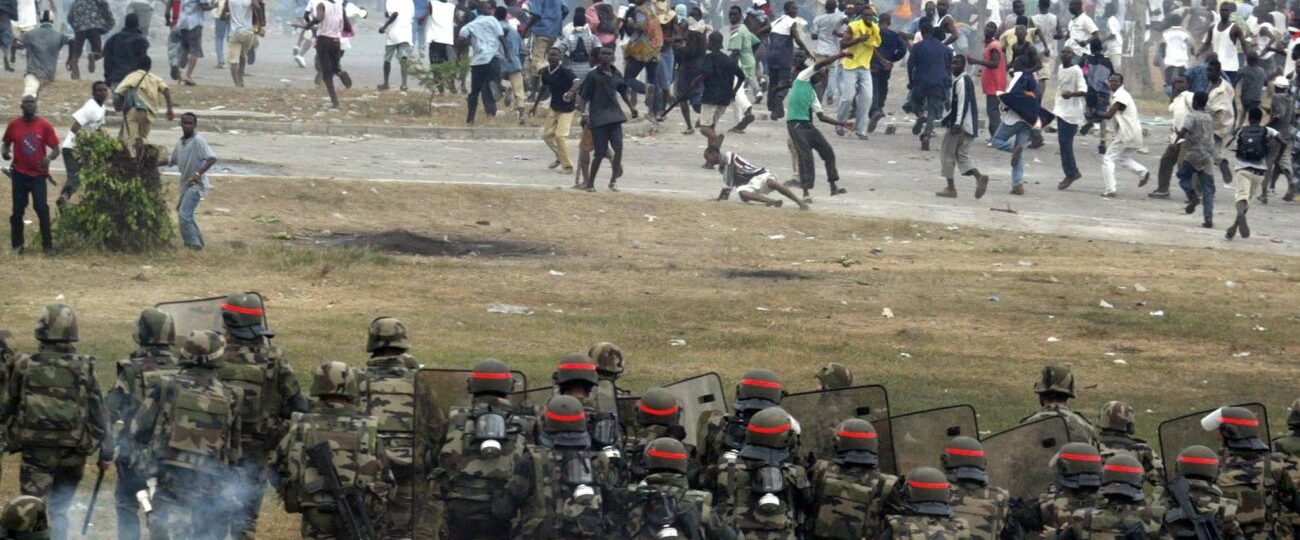In 2025, Côte d’Ivoire faces a significant political crisis as the disqualification of opposition leader Tidjane Thiam from the upcoming presidential election has led to widespread unrest and concerns about the country’s democratic future. The situation has escalated tensions ahead of the October elections, with implications for national stability and international relations.
Background: Tidjane Thiam’s Disqualification
Tidjane Thiam, a prominent opposition figure and former CEO of Credit Suisse, was removed from the electoral roll by an Ivorian court on April 22, 2025. The court cited his previous French nationality, stating that he had forfeited his Ivorian citizenship upon acquiring French citizenship in 1987. Despite renouncing his French citizenship in February 2025, the court ruled that he was ineligible to run for president due to the loss of Ivorian nationality at the time of his registration.
Despite the social media activity, reputable news outlets have not reported any confirmed coup in Ivory Coast. Recent articles focus on other regional and national developments:
- On April 22, 2025, BBC reported that Burkina Faso’s military government claimed to have foiled a “major plot” to overthrow junta leader Capt Ibrahim Traoré, alleging the plotters were based in Ivory Coast .
- This is significant, as it shows Ivory Coast being implicated in a neighboring country’s coup plot, but not experiencing one itself.
- DW, on the same date, echoed this, stating that Burkina Faso’s intelligence service thwarted a plot planned in Ivory Coast, with no mention of a coup in Ivory Coast .
- Reuters, in a report from May 21, 2025, mentioned an old coup plot from 2006, which is irrelevant to current events, indicating a possible search error .
Government Silence and Regional Influence
Notably, the Ivorian government has not issued any official statements addressing the coup rumors. In cases of significant political events, especially those involving the head of state, governments typically respond quickly to clarify the situation. The lack of a denial or confirmation, combined with the absence of news corroboration, strongly suggests that no coup is occurring.
The spread of these rumors may be fueled by West Africa’s recent history of military takeovers, including in Burkina Faso, Mali, and Niger. This regional context could make coup claims seem plausible, amplifying their reach on social media. However, without supporting evidence, these appear to be baseless speculations.
The absence of official denials about a domestic coup could suggest no such event occurred, as major political upheavals typically prompt immediate responses.
Political Fallout and Protests
Thiam’s disqualification has led to significant political fallout. Opposition supporters have organized protests, expressing their dissatisfaction with the ruling. However, these demonstrations have seen limited turnout, with only a few hundred protesters participating in rallies. Thiam has vowed to continue fighting for his right to run, stating that the decision disenfranchises millions and undermines the democratic process.
The presidential elections, set for October 25, 2025, are anticipated to be highly competitive. Declared candidates include:
- Laurent Gbagbo (PPA-CI), former president of Côte d’Ivoire (2000–2011)
- Pascal Affi N’Guessan (FPI), former prime minister (2000–2003)
- Simone Gbagbo (MGC), former first lady (2000–2011)
- Jean-Louis Billon (Independent), Minister of Commerce (2015–present)
- Gnangbo Kacou (Independent), former deputy
The political landscape is further complicated by discussions of potential alliances among opposition parties to challenge the ruling party’s dominance
Impact on the Opposition and Electoral Landscape
The disqualification of Thiam has disrupted the opposition’s strategy for the upcoming elections. Thiam had been a leading figure in the Democratic Party of Côte d’Ivoire (PDCI) and was considered a strong contender against incumbent President Alassane Ouattara. Following his removal from the electoral roll, Thiam resigned as leader of the PDCI on May 12, 2025, but was re-elected as party president on May 14, 2025, with over 99% of the vote. This move is seen as an effort to maintain party unity and leadership amid legal challenges.
International and Domestic Reactions
The international community has expressed concern over the developments in Côte d’Ivoire. Observers fear that the disqualification of opposition candidates could lead to increased political instability and undermine the credibility of the electoral process. Domestically, the ruling has sparked debates about the independence of the judiciary and the fairness of the electoral system. Some government officials defend the court’s decision, citing adherence to nationality laws, while critics argue that it represents a manipulation of legal frameworks to suppress political opposition.
Security Concerns and Military Developments
The political crisis coincides with significant changes in Côte d’Ivoire’s security landscape. In early 2025, the country announced the withdrawal of French troops, marking the end of a longstanding military presence. The French-run military base in Port Bouët was handed over to Ivorian forces, reflecting a shift towards national sovereignty and self-reliance in defense matters. This transition raises questions about the country’s capacity to maintain security amid political unrest and potential threats from extremist groups in the region.
Côte d’Ivoire’s political crisis in 2025, marked by the disqualification of opposition leader Tidjane Thiam, has heightened tensions ahead of the presidential elections. The situation underscores challenges related to electoral fairness, judicial independence, and national security. As the country navigates this turbulent period, the actions of political leaders, civil society, and international partners will be crucial in determining the path towards stability and democratic governance.
As of now, there is no credible evidence to substantiate claims of a military coup in Ivory Coast. The rumors, primarily driven by social media, lack backing from reputable news sources, and local voices have even dismissed them as false. With the country’s political focus on the upcoming election and no signs of internal disruption, the situation in Ivory Coast appears stable.
This incident serves as a reminder of the power and pitfalls of digital communication. In a region with a complex political history, verifying information from trusted sources remains essential to distinguishing truth from misinformation. For now, the coup rumors in Ivory Coast remain just that—rumors.

